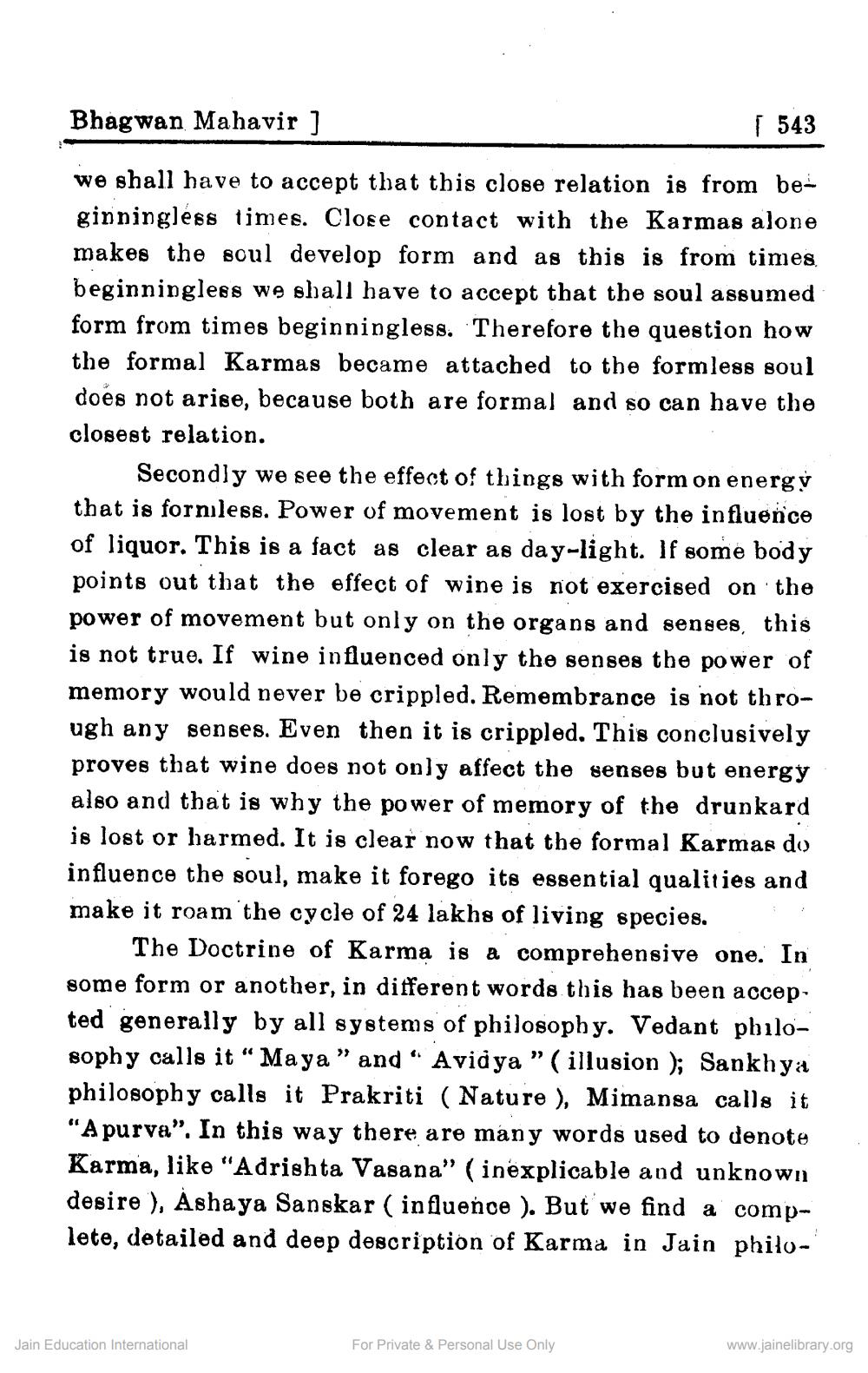________________
Bhagwan Mahavir ]
T 543
we shall have to accept that this close relation is from be: ginningless times. Close contact with the Karmas alone makes the soul develop form and as this is from times. beginningless we shall have to accept that the soul assumed form from times beginningless. Therefore the question how the formal Karmas became attached to the formless soul does not arise, because both are formal and so can have the closest relation.
Secondly we see the effect of things with form on energy that is forniless. Power of movement is lost by the influence of liquor. This is a fact as clear as day-light. If some body points out that the effect of wine is not exercised on the power of movement but only on the organs and senses, this is not true. If wine influenced only the senses the power of memory would never be crippled. Remembrance is not through any senses. Even then it is crippled. This conclusively proves that wine does not only affect the senses but energy also and that is why the power of memory of the drunkard is lost or harmed. It is clear now that the formal Karmas do influence the soul, make it forego its essential qualities and make it roam the cycle of 24 lakhs of living species.
The Doctrine of Karma is a comprehensive one. In some form or another, in different words this has been accepted generally by all systems of philosophy. Vedant philosophy calls it “Maya" and " Avid ya ” (illusion ); Sankhya philosophy calls it Prakriti (Nature ), Mimansa calls it "A purva”. In this way there are many words used to denote Karma, like "Adrishta Vasana” ( inexplicable and unknown desire ), Ashaya Sanskar ( influence ). But we find a complete, detailed and deep description of Karma in Jain philo
Jain Education International
For Private & Personal Use Only
www.jainelibrary.org




